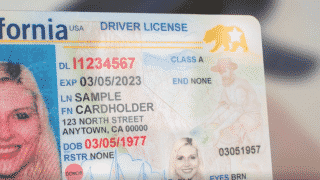
The life of every migrant is split in two. The first part — which he kept at home, the second — which began after a move.
So, Rosa Maria in El Salvador was a sociologist. After fleeing in 2002 in long island (NY) Rosa had to do cleaning of apartments by the day and fast-food restaurants at night. She regularly pays taxes, know English, and her children strive to realize the American dream: the son is a journalist, a daughter studying to be a psychologist, reports the Los Angeles Times.

Meanwhile, the decision of the administration of Donald trump on the termination for certain immigrants Temporary Protected Status — temporary protected status — threatened the Rose family with deportation along with 200 thousand compatriots.
The scale of immigration from El Salvador is huge. According to statistics, one out of three Salvadorans lives abroad, mainly in the USA. In 2017 year, the remittances of immigrants from El Salvador home reached $400 million, or approximately 17% of the GDP of this country.
Of course, not all migrants are entitled to TPS. At the end of the civil war in El Salvador in 1992, the United States deported a huge number of Salvadorans, most of whom were serving in America prison. In post-war El Salvador deported criminals soon made bloody gang MS-13 and Barrio 18.
Now in the case of deportation to this «pot» would be people like Rosa Maria and her children. The capital of El Salvador is considered one of the most dangerous places to live on the planet. According to the organization «Doctors without borders», in 2017, about 40% of migrants deported from the United States, fled here because of the violence they faced at home.
According to the Los Angeles Times, the problem is compounded by the fact that the government of El Salvador does not offer immigrants virtually no help, except to call the hotline and get to the reception centre. The local Church and small businesses provide some assistance, focusing on employment of deportation or offering small grants. However, they can’t protect compatriots who arrived from robbers and rapists.